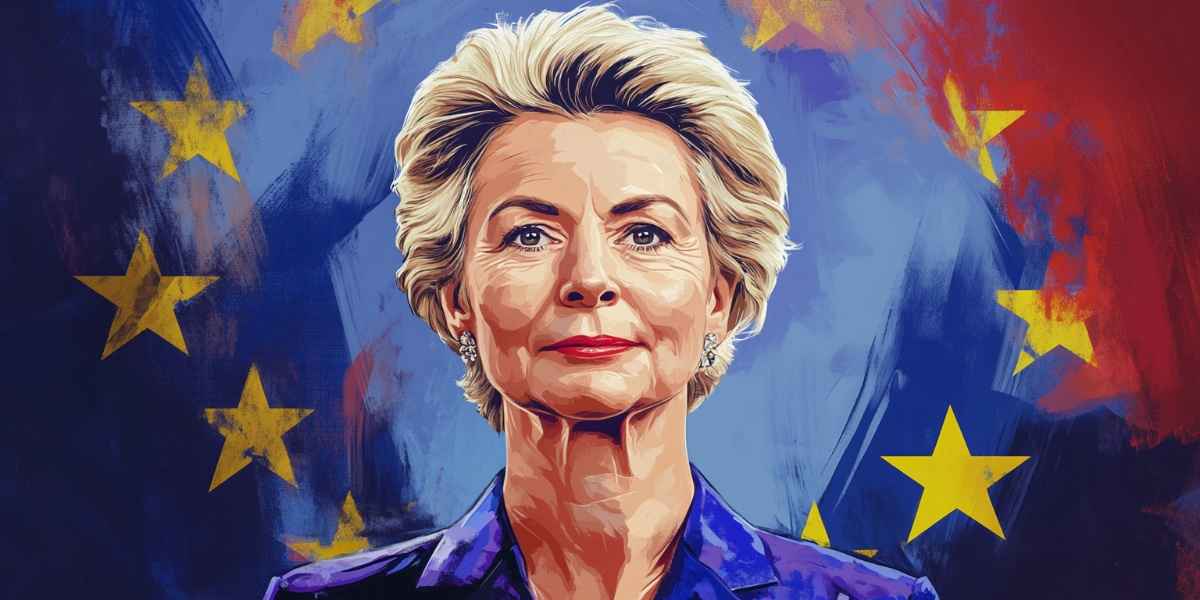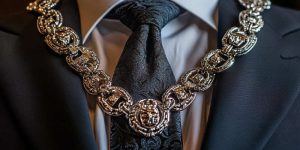Ursula von der Leyen: A Career Marked by Controversy and Undemocratic Ascension

Ursula von der Leyen, the current President of the European Commission, is one of the most powerful figures in European politics. Her rise to power, however, has been anything but transparent or democratic. From the very beginning of her political career in Germany to her controversial appointment as head of the European Commission, von der Leyen has been embroiled in numerous scandals and allegations of misconduct. Yet, despite repeated scrutiny and accusations of corruption, mismanagement, and cronyism, she has managed to secure some of the highest offices in Europe — without ever facing direct election by the European people.
Early Political Career and Initial Controversies
Background and Entry into Politics
Born in 1958, Ursula von der Leyen is the daughter of Ernst Albrecht, a prominent German politician and former Minister-President of Lower Saxony. Her privileged background provided her with early exposure to politics. Initially pursuing a medical career, von der Leyen transitioned into politics in the early 2000s, aligning with the Christian Democratic Union (CDU). Her rise within the party was swift, aided in part by her family’s political connections.
Von der Leyen’s first major government role came in 2005 when she was appointed Germany’s Minister for Family Affairs, Senior Citizens, Women and Youth under Chancellor Angela Merkel.
Questionable financial decisions and cronyism
As Minister of Family Affairs (2005–2009), von der Leyen championed controversial family policies, including state-funded daycare centers and parental leave reforms. However, allegations of financial mismanagement quickly emerged. Critics accused her of funneling funds into poorly managed projects and awarding contracts to close political allies without proper oversight.
Her career took a more troubling turn when she became Germany’s Minister of Defence in 2013 — a position that would become the focal point of her most damaging scandals. Under her leadership, Germany’s military fell into disarray, with chronic equipment failures, embarrassing training accidents, and serious issues with military readiness. But the most damning accusations concerned the awarding of defense contracts.
Tenure as Minister of Defence
- Consultant Scandal: Allegations arose concerning the irregular awarding of contracts to external consultants without proper oversight. Reports by Germany’s Federal Audit Office highlighted numerous irregularities in the hiring processes within the defense ministry. Parliamentary inquiries scrutinized her management practices and questioned why millions of euros in taxpayer funds had been awarded without competitive bidding. The scandal ultimately implicated high-ranking ministry officials, raising questions about von der Leyen’s competence and integrity (according to “The scandal hanging over Ursula von der Leyen” – POLITICO).
- Plagiarism Accusations: In 2015, von der Leyen faced allegations of plagiarism related to her medical thesis. A German online platform specializing in uncovering plagiarism claimed that several sections of her dissertation were directly copied from other sources without proper citation. Although an investigation acknowledged instances of plagiarism, it concluded that they were not extensive enough to warrant the revocation of her doctorate. This finding, however, did little to dispel public suspicion of academic dishonesty (as reported in “German defense minister accused of plagiarism” – DW).
- Military Readiness Issues: Under von der Leyen’s leadership, the German armed forces faced significant readiness issues. Reports indicated that a large percentage of military aircraft, naval vessels, and armored vehicles were non-operational due to maintenance problems and equipment shortages. Von der Leyen was widely criticized for failing to address these deficiencies effectively, which were seen as a threat to Germany’s defense capabilities (as noted in “Germany’s military readiness crisis” – Der Spiegel).
Ascension to European Commission President
Departure from the Spitzenkandidat Process
In 2019, von der Leyen’s nomination for President of the European Commission bypassed the traditional Spitzenkandidat system, which typically considers lead candidates from major political groups in the European Parliament. Instead, she was selected through closed-door negotiations among EU senior officials, a move that drew criticism for its lack of transparency and democratic legitimacy (as reported in “Ursula von der Leyen and the Spitzenkandidat controversy” – The Independent).
The Spitzenkandidat system was designed to give European voters greater influence over the appointment of the Commission President by tying it to the outcome of the European Parliament elections. Von der Leyen’s nomination bypassed this system entirely, raising concerns about the democratic accountability of the European Commission’s leadership selection process. Critics argued that her appointment reflected a backroom deal among the EU’s most powerful member states, rather than the will of European voters.
Narrow Approval and Criticisms
Her nomination faced substantial opposition within the European Parliament. Von der Leyen secured the presidency with a razor-thin majority of nine votes, reflecting the deep divisions within the Parliament and the lack of broad support for her candidacy. Manfred Weber, leader of the European People’s Party and the original Spitzenkandidat, criticized the decision, stating that it undermined the democratic legitimacy of the Commission (according to “Von der Leyen’s narrow victory” – Euronews).
Several MEPs (Members of the European Parliament) expressed dissatisfaction with the opaque process, arguing that it reinforced the perception of the EU as an undemocratic institution where decisions are made behind closed doors rather than through transparent democratic mechanisms.
Pfizer Vaccine Deal Controversy
Secret Negotiations
During the COVID-19 pandemic, von der Leyen personally negotiated a significant vaccine procurement deal with Pfizer CEO Albert Bourla. The negotiations, conducted via private text messages, resulted in a contract worth approximately €21.5 billion. The lack of transparency in these dealings raised concerns about accountability and the potential for conflicts of interest (as reported in “Pfizer’s secret deal with the EU” – The Guardian).
Requests for access to these communications under EU freedom of information laws were denied, with the European Commission arguing that the text messages did not qualify as official documents. This decision was widely criticized by transparency advocates and members of the European Parliament, who argued that it reflected a broader pattern of secrecy and unaccountability within von der Leyen’s administration (according to “EU transparency and the Pfizer deal” – Politico).
Legal Actions and Transparency Issues
The refusal to disclose the contents of the text messages led to legal actions, including a lawsuit by The New York Times. The case highlighted broader issues of transparency within the EU’s procurement processes and von der Leyen’s apparent willingness to bypass established rules of accountability. Critics argued that the secrecy surrounding the Pfizer deal reinforced the perception of the Commission as a technocratic institution removed from public oversight (as noted in “EU judges and the Pfizer deal” – Financial Times).
Conflict of interest and revolving door politics
Von der Leyen’s dealings with Pfizer are part of a broader pattern of close ties between her political decisions and the pharmaceutical and consulting industries. Her defense ministry scandal involved McKinsey, and her vaccine deal with Pfizer suggests that corporate interests have played a significant role in her political decisions.
Her husband, Heiko von der Leyen, is a medical director at Orgenesis, a biotech company specializing in gene and cell therapy. This connection has raised questions about conflicts of interest, particularly given the massive public funding directed toward biotech firms under von der Leyen’s leadership during the COVID-19 pandemic.
Centralization of Power and Democratic Concerns
Leadership Style
Critics have pointed to von der Leyen’s leadership approach as overly centralized, earning her the nickname “Queen Ursula” within Brussels. Her style has sparked debates about the balance of power within the EU and the potential marginalization of democratic processes. Von der Leyen’s tendency to sideline national governments and concentrate decision-making authority within the Commission has raised concerns about the democratic legitimacy of the EU’s governance structures (as described in “Von der Leyen’s leadership under scrutiny” – Politico).
Institutional Tensions
Her tenure has also been marked by tensions between EU institutions. The European Parliament’s limited influence over the composition and leadership of the European Commission has led to calls for reforms to enhance democratic accountability within the EU. Some MEPs have proposed strengthening the Spitzenkandidat process or introducing direct elections for the Commission President as a means of addressing these concerns.
Von der Leyen’s willingness to bypass the Parliament and rely on informal negotiations with member states has further eroded trust in the Commission’s democratic credentials. This dynamic has reinforced broader public skepticism about the EU’s ability to function as a truly democratic institution (according to “EU democracy and institutional tensions” – The Independent).
Conclusion
Ursula von der Leyen’s political career is a case study in elite privilege, backroom deals, and political impunity. From her early days in German politics to her tenure as Defense Minister and her undemocratic appointment as President of the European Commission, von der Leyen has repeatedly evaded accountability despite being at the center of serious scandals. Her close ties to the consulting and pharmaceutical industries, her suspicious dealings with Pfizer, and her resistance to transparency undermine her credibility as a public servant.
Von der Leyen’s career demonstrates the deep flaws in the European Union’s political structure, where senior officials are elevated to positions of immense power without democratic legitimacy. Despite multiple allegations of misconduct, corruption, and incompetence, von der Leyen remains entrenched in power — a troubling reflection of the EU’s democratic deficit and the unaccountable nature of its leadership.


















